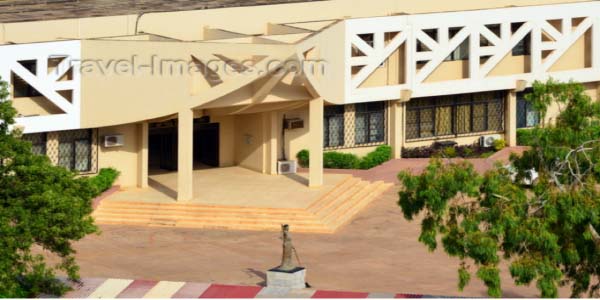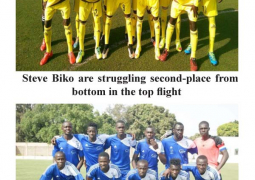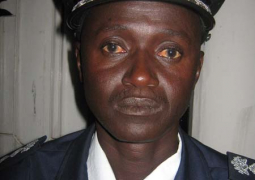
Members
of The Gambia Bar Association have continued to boycott sittings at the High
Court in Banjul, and show no signs of any compromise or returning to the
courts, before the country’s superior courts proceed on Christmas vacation
later this week.
It
would be recalled that the Gambia Bar Association issued a press statement
urging all members of the Bar and staff of the Judiciary, in particular, to
boycott the courts in solidarity with the Gambian people, until such time the
Government of the outgoing President Yahya Jammeh accepts the result of the
election, and hand over power to President-elect Adama Barrow.
It
has been a week since the lawyers began boycotting court sittings at the high
court and other subordinates courts across the country.
When
our reporter visited the High Court complex in Banjul yesterday, the court
premises were calm and deserted, even though some of the courtrooms were
opened.
The
judges have been reporting for work; some were in their chambers; others were
seen around the verandah, and some seen going and coming from the Chief
Justice’s Chambers.
Most
of the Judiciary staff were present for the day’s work, with the drivers seen
sitting at their usual corners, and others washing a judge’s (their boss’s)
car.
At
the registry and account’s department, the secretaries and clerks were busy
doing their normal daily work, and in other offices the clerks, registrars,
secretaries and interpreters were also seen at work; the library was opened.
The
usual bustle of prison warders escorting trial prisoners into the court
premises was absent.
No
private lawyers were seen around or in the courtrooms, as most courtrooms were
either empty or the doors shut.
Meanwhile,
Mass Fatajo, Ada Gaye, former permanent secretary at the Ministry of
Agriculture, Ebrima Jawara and some other accused persons were seen waiting
outside the verandah of Justice E.O. Dada’s court; but they waited for a while,
and left.
Others
left after they had discovered that their case was not proceeding.
This reporter went to the Attorney General’s Chambers, and met state lawyers who expressed their willingness to go to court, but said they could not do so in the absence of trial prisoners and their legal counsel.
Read Other Articles In Article (Archive)
In great danger (Part 3)
Oct 17, 2012, 10:39 AM



